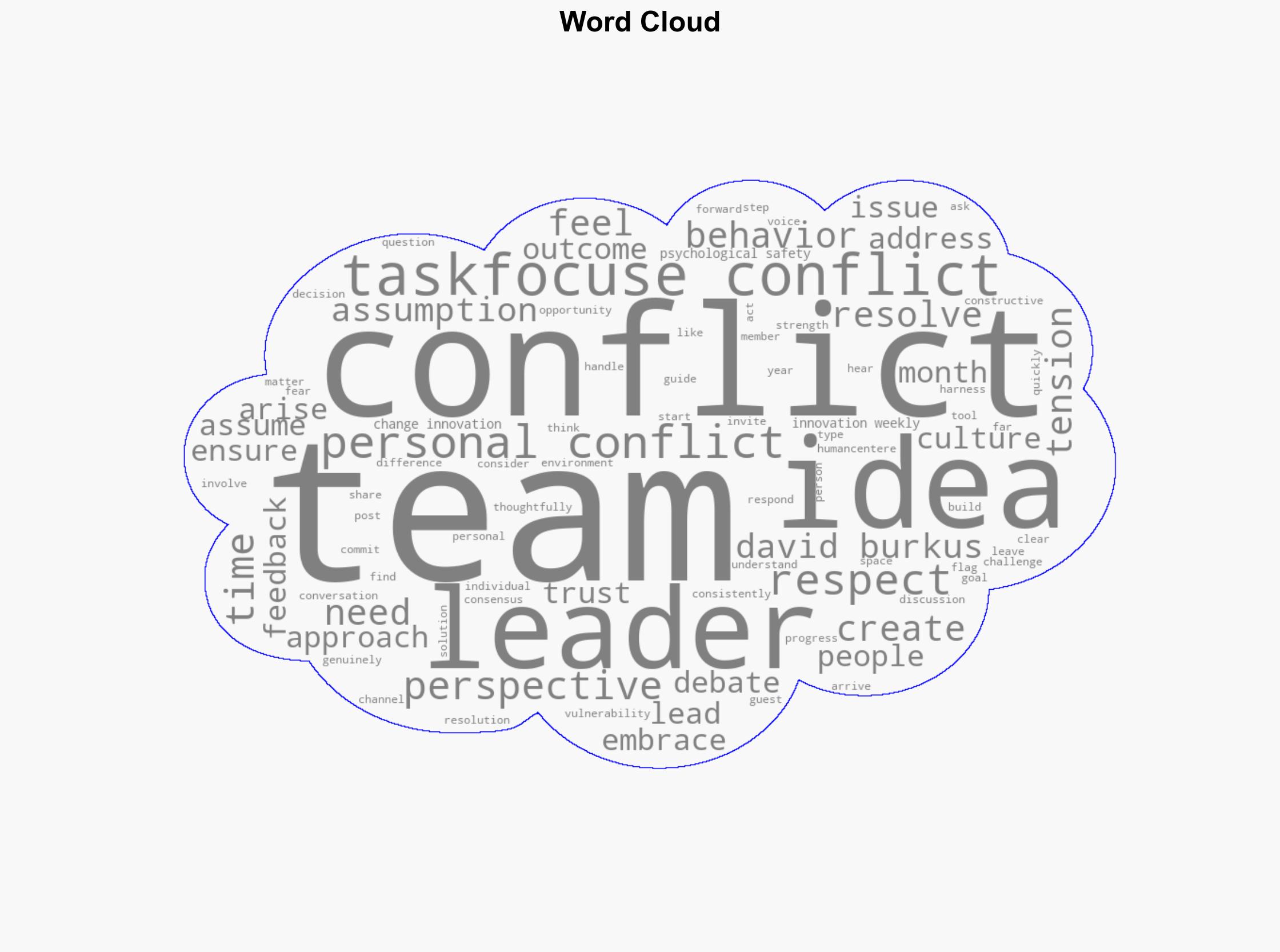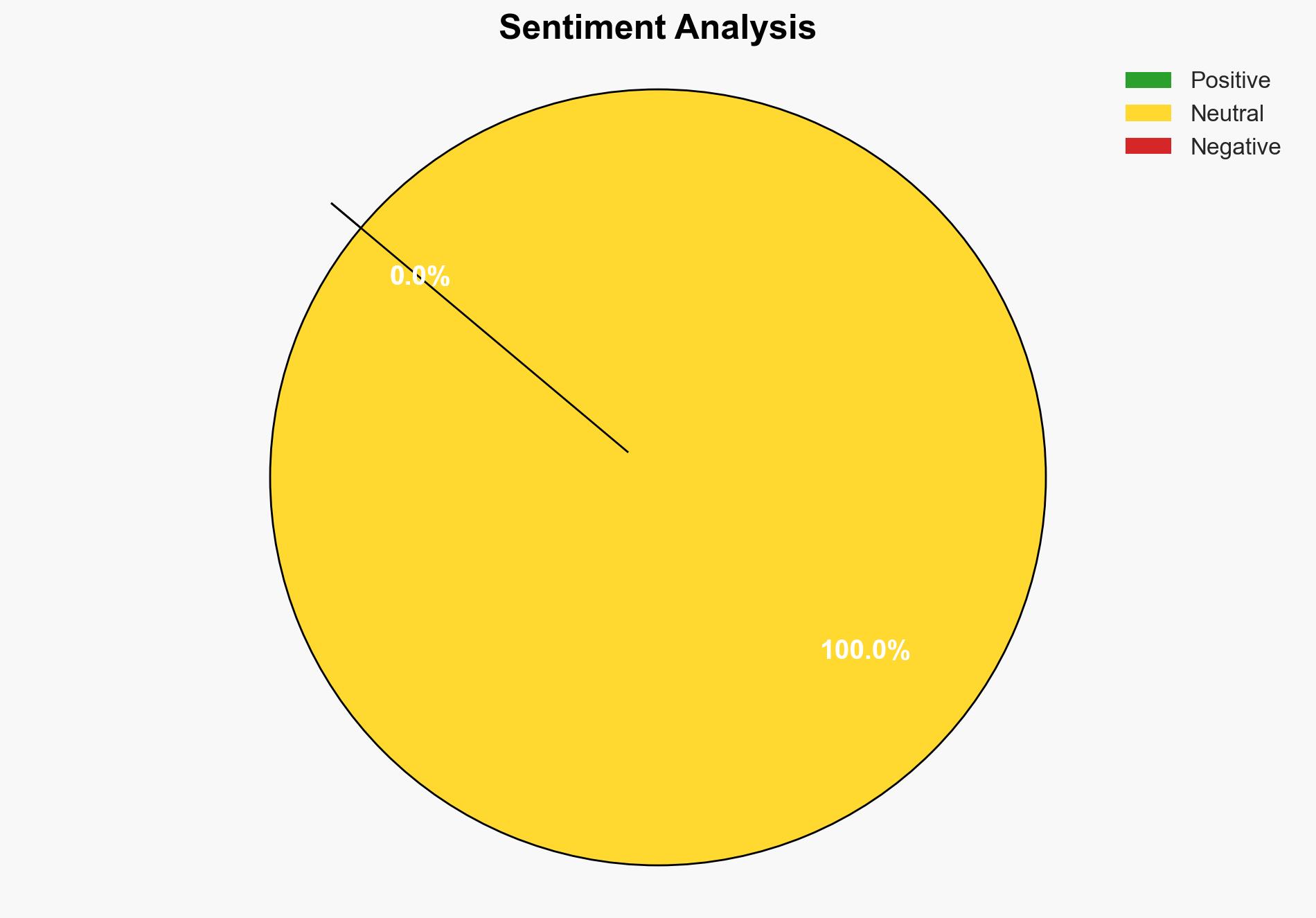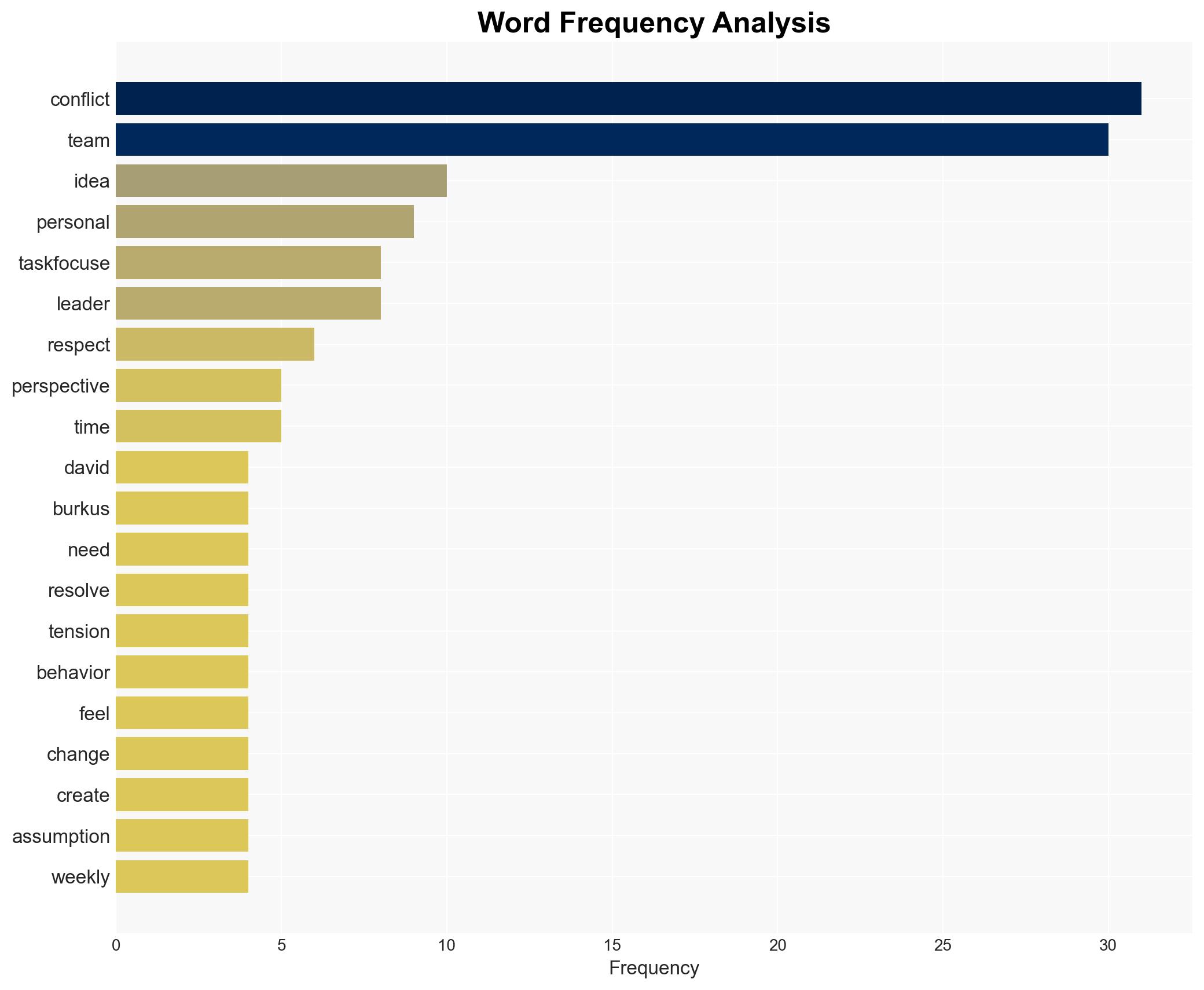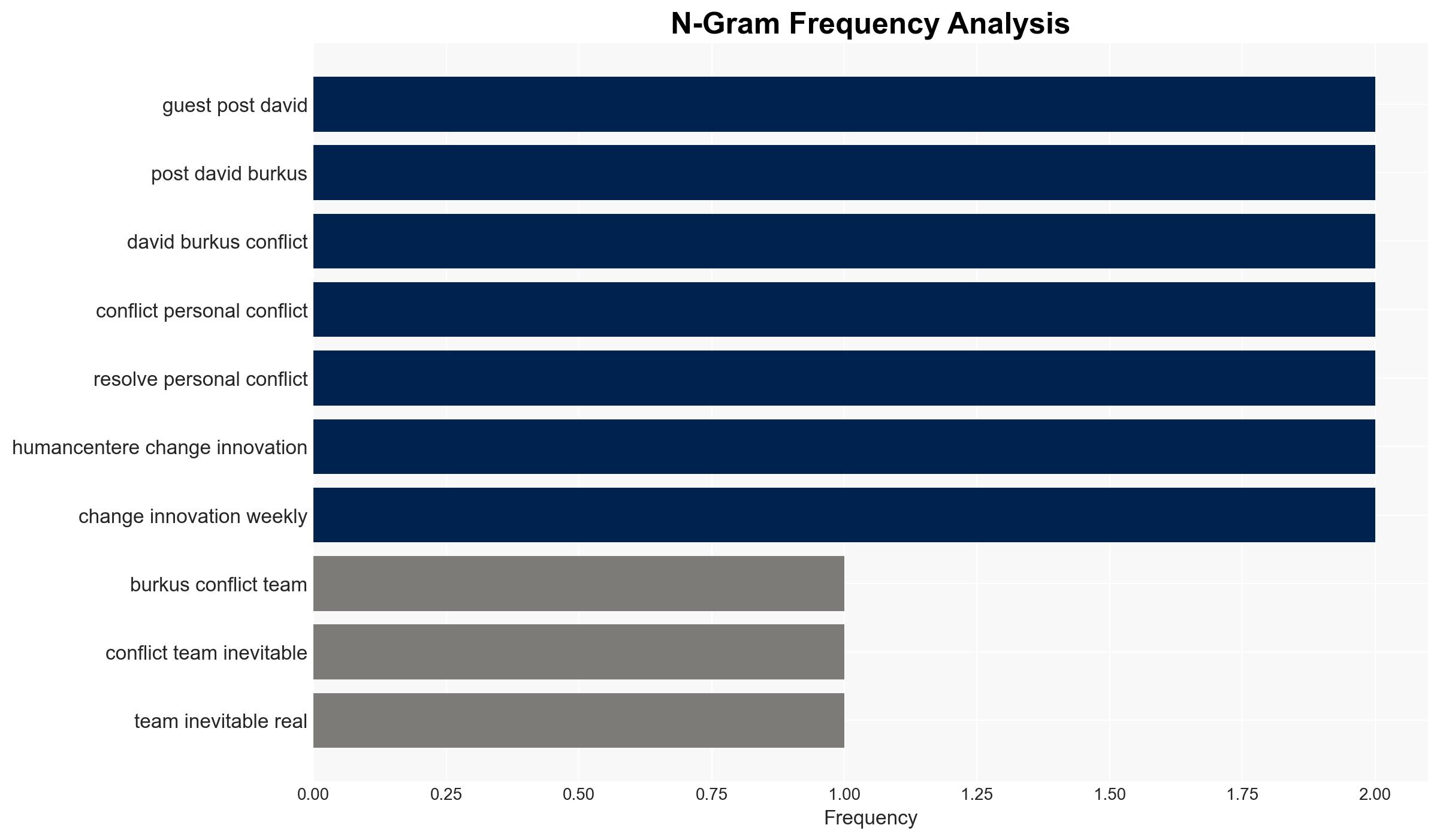Team Conflict Isnt Always Bad
Published on: 2025-11-23
AI-powered OSINT brief from verified open sources. Automated NLP signal extraction with human verification. See our Methodology and Why WorldWideWatchers.
Intelligence Report:
1. BLUF (Bottom Line Up Front)
The strategic judgment is that task-focused conflict within teams can be beneficial if managed properly, while personal conflict must be addressed promptly to prevent team dysfunction. The most supported hypothesis is that effectively channeling task-focused conflict can lead to innovation and improved team performance. Confidence Level: Moderate. Recommended action is to implement structured conflict resolution and management processes to harness the benefits of task-focused conflict while mitigating the risks of personal conflict.
2. Competing Hypotheses
Hypothesis 1: Task-focused conflict, when managed correctly, can enhance team performance by fostering creativity and innovation. This hypothesis is supported by the notion that diverse perspectives and ideas can lead to better problem-solving and decision-making.
Hypothesis 2: All forms of conflict, including task-focused, are detrimental to team dynamics and should be minimized. This hypothesis suggests that any conflict can lead to negative outcomes such as decreased morale and productivity if not handled properly.
The evidence leans towards Hypothesis 1, as the structured management of task-focused conflict can indeed channel diverse ideas into productive outcomes, whereas Hypothesis 2 does not account for the potential benefits of well-managed conflict.
3. Key Assumptions and Red Flags
Assumptions:
– Leaders have the skills to differentiate between personal and task-focused conflict.
– Teams have established processes for conflict resolution.
– Team members are willing to engage in open and respectful dialogue.
Red Flags:
– Lack of leadership training in conflict management.
– Absence of a clear process for addressing personal conflicts.
– Signs of unresolved personal conflicts leading to team dysfunction.
4. Implications and Strategic Risks
Unaddressed personal conflict can lead to a toxic work environment, reducing productivity and increasing turnover. If task-focused conflict is not managed, it can escalate into personal conflict. This could have cascading effects on team morale and performance, potentially impacting organizational goals and competitiveness.
5. Recommendations and Outlook
- Implement training programs for leaders on conflict resolution and management.
- Establish clear protocols for addressing personal conflicts promptly.
- Encourage a culture of open communication and psychological safety to harness task-focused conflict.
- Best-case scenario: Teams effectively manage conflicts, leading to increased innovation and productivity.
- Worst-case scenario: Unresolved conflicts lead to a toxic environment, high turnover, and decreased performance.
- Most-likely scenario: With proper management, task-focused conflict will lead to incremental improvements in team performance.
6. Key Individuals and Entities
David Burkus (Guest Post Author)
7. Thematic Tags
Cybersecurity, Team Dynamics, Conflict Management, Leadership, Organizational Behavior
Structured Analytic Techniques Applied
- Adversarial Threat Simulation: Model and simulate actions of cyber adversaries to anticipate vulnerabilities and improve resilience.
- Indicators Development: Detect and monitor behavioral or technical anomalies across systems for early threat detection.
- Bayesian Scenario Modeling: Quantify uncertainty and predict cyberattack pathways using probabilistic inference.
- Narrative Pattern Analysis: Deconstruct and track propaganda or influence narratives.
Explore more:
Cybersecurity Briefs ·
Daily Summary ·
Support us





